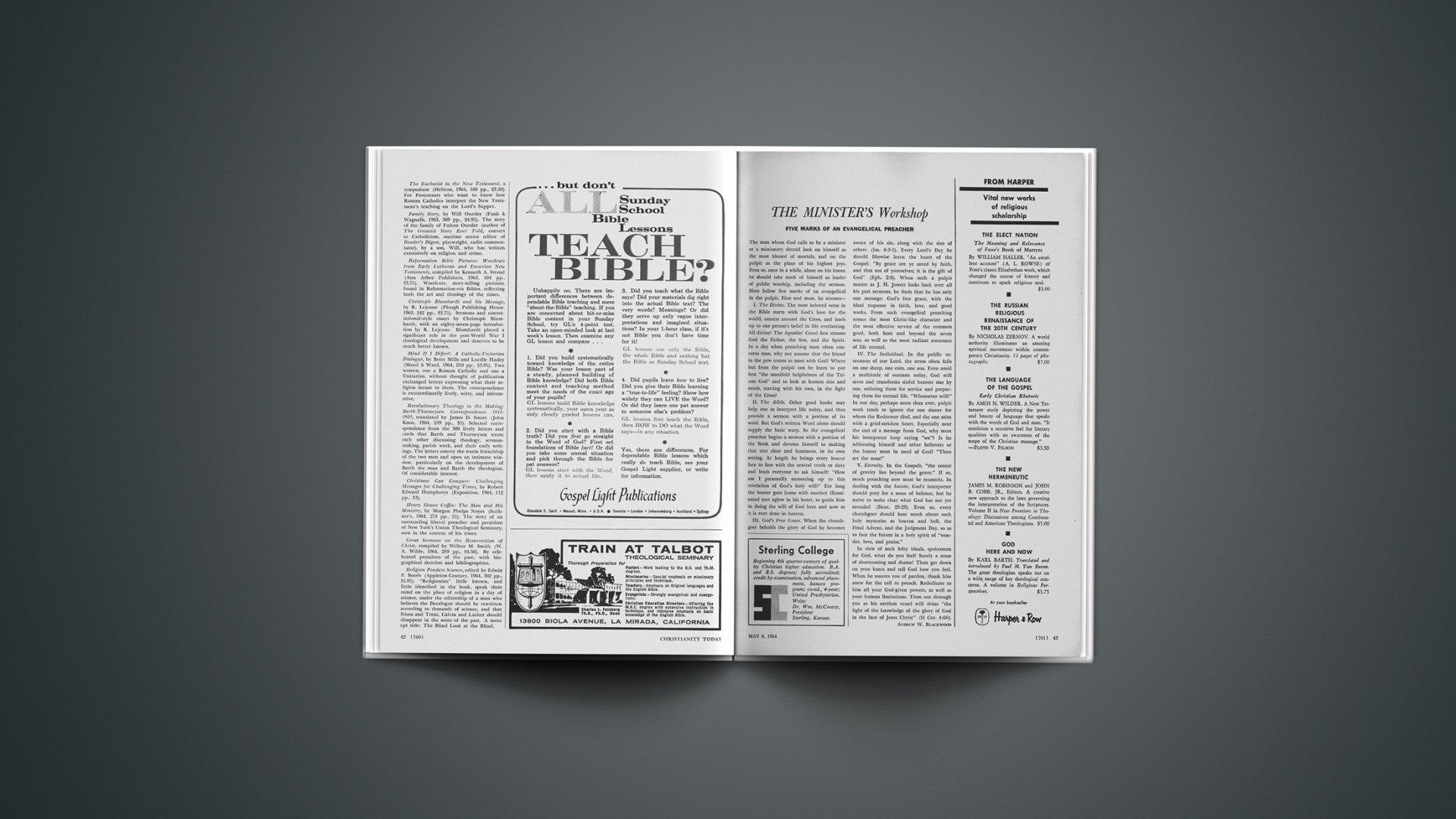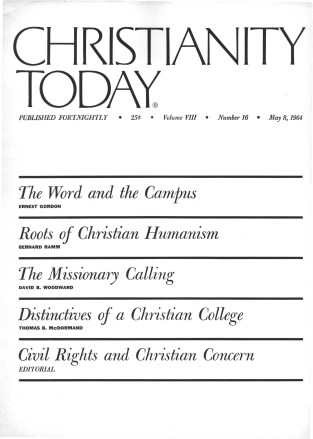The man whom God calls to be a minister or a missionary should look on himself as the most blessed of mortals, and on the pulpit as the place of his highest joys. Even so, once in a while, alone on his knees, he should take stock of himself as leader of public worship, including the sermon. Here follow five marks of an evangelical in the pulpit. First and most, he stresses—
I. The Divine. The most beloved verse in the Bible starts with God’s love for the world, centers around the Cross, and leads up to one person’s belief in life everlasting. All divine! The Apostles’ Creed first stresses God the Father, the Son, and the Spirit. In a day when preaching most often concerns man, why not assume that the friend in the pew comes to meet with God? Where but from the pulpit can he learn to put first “the manifold helpfulness of the Triune God” and to look at human sins and needs, starting with his own, in the light of the Cross?
II. The Bible. Other good books may help one to interpret life today, and thus provide a sermon with a portion of its woof. But God’s written Word alone should supply the basic warp. So the evangelical preacher begins a sermon with a portion of the Book and devotes himself to making that text clear and luminous, in its own setting. At length he brings every hearer face to face with the central truth or duty and leads everyone to ask himself: “How am I personally measuring up to this revelation of God’s holy will?” Ere long the hearer goes home with another illuminated text aglow in his heart, to guide him in doing the will of God here and now as it is ever done in heaven.
III. God’s Free Grace. When the churchgoer beholds the glory of God he becomes aware of his sin, along with the sins of others (Isa. 6:3–5). Every Lord’s Day he should likewise learn the heart of the Gospel: “By grace are ye saved by faith, and that not of yourselves; it is the gift of God” (Eph. 2:8). When such a pulpit master as J. H. Jowett looks back over all his past sermons, he finds that he has only one message: God’s free grace, with the ideal response in faith, love, and good works. From such evangelical preaching comes the most Christ-like character and the most effective service of the common good, both here and beyond the seven seas, as well as the most radiant assurance of life eternal.
IV. The Individual. In the public utterances of our Lord, the stress often falls on one sheep, one coin, one son. Even amid a multitude of outcasts today, God still saves and transforms sinful hearers one by one, enlisting them for service and preparing them for eternal life. “Whosoever will” In our day, perhaps more than ever, pulpit work tends to ignore the one sinner for whom the Redeemer died, and the one saint with a grief-stricken heart. Especially near the end of a message from God, why must his interpreter keep saying “we”? Is he addressing himself and other believers or the hearer most in need of God? “Thou art the man!”
V. Eternity. In the Gospels, “the center of gravity lies beyond the grave.” If so, much preaching now must be eccentric. In dealing with the future, God’s interpreter should pray for a sense of balance, lest he strive to make clear what God has not yet revealed (Deut. 29:29). Even so, every churchgoer should hear much about such holy mysteries as heaven and hell, the Final Advent, and the Judgment Day, so as to face the future in a holy spirit of “wonder, love, and praise.”
In view of such lofty ideals, spokesman for God, what do you feel? Surely a sense of shortcoming and shame! Then get down on your knees and tell God how you feel. When he assures you of pardon, thank him anew for the call to preach. Rededicate to him all your God-given powers, as well as your human limitations. Then out through you as his earthen vessel will shine “the light of the knowledge of the glory of God in the face of Jesus Christ” (2 Cor. 4:6b).










